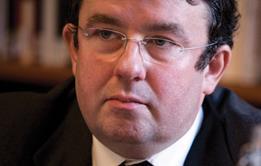Both foundation trusts and ministers are both focusing on improving quality ahead of the election, but the emphasis on controlling costs will return
At the heart of providing public services is finding and maintaining a balanced state of tension in which the best outcomes are achieved for the best value investment. In reality, the tension is more like a tug of war.
‘Ministers will be focused on avoiding bad news on quality but post-election, controlling costs and achieving sustainability will return’
In our post-Francis, state deficit reducing world, the Foundation Trust Network summed up its members’ view: “If I’m going to be hung for something, I’ll be hung for the finances rather than the quality”. The FTN’s financial analysis puts the two-year cost of responding to the measures arising from the Francis report at £1.2bn.
There is a particular challenge for the non-acute sector, where NHS England and Monitor have decided the costs of implementing the recommendations of Francis and Keogh “do not apply” – a conclusion challenged by NHS England board member Lord Adebowale and Robert Francis himself.
Testing the theory
In the past two weeks alone, Birmingham and Solihull Mental Health Foundation Trust decided to increase staff numbers, and 5 Boroughs Partnership Foundation Trust has negotiated with its clinical commissioning groups for a lower “tariff deflator” than that proposed by NHS England.
With the election approaching, ministers will be focused on avoiding bad news on quality. Post-election, controlling costs and achieving sustainability will return.
In the meantime, we may have some emerging case studies in whether spending more on staff does bring down factors such as length of stay and the associated costs – hypotheses much discussed but largely untested of in recent years.
Post-Francis and Keogh changes could cost trusts £1.2bn, says FTN

Reforms recommended by the Francis inquiry and Keogh review could cost healthcare providers up to £1.2bn, several times the sum earmarked by government agencies for the changes.
- 1
 Currently
reading
Currently
reading
Quality trumps cost in post-Francis NHS





























11 Readers' comments